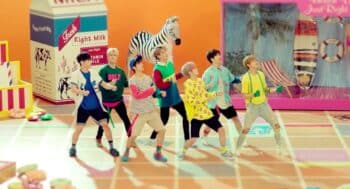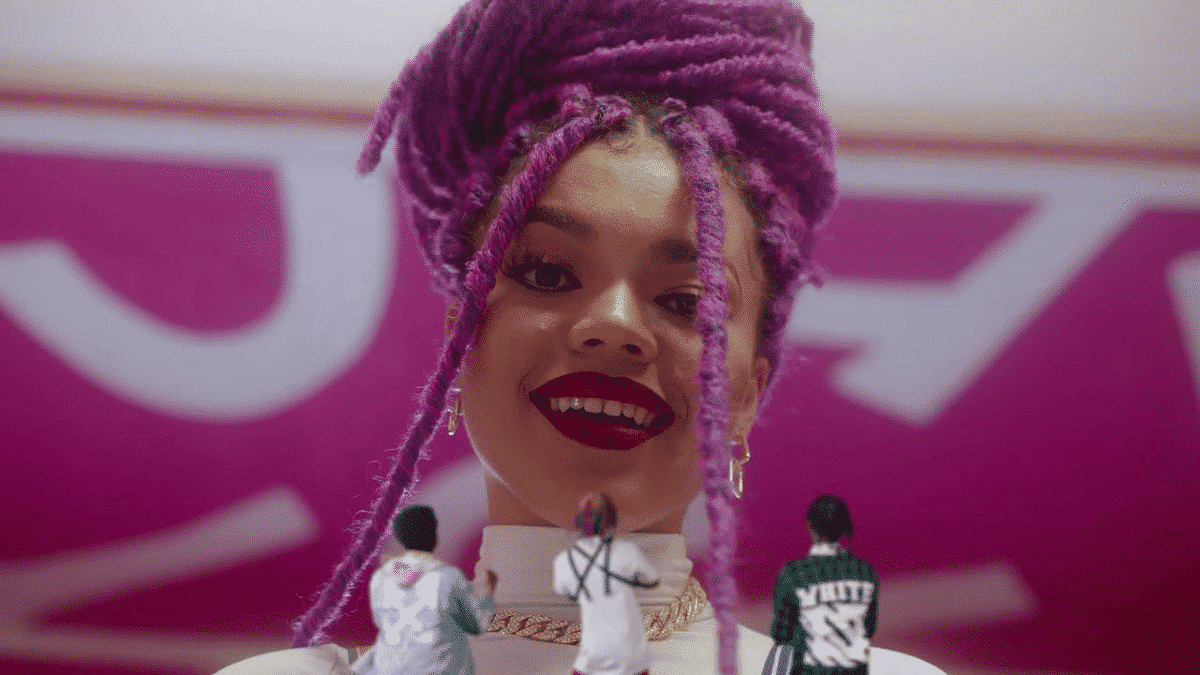Lyta Accused of Music Video Plagiarism
When homage goes wrong...
For the Nigerian musician Lyta, Friday should have been a very important day. After leaving his previous label, he made his public debut on Marlian Music with his new song Hold Me Down.
However, shortly after the song went live, fans of the K-Pop band GOT7 noticed some extreme similarities between Lyta’s latest music video and the video for the 2015 GOT7 song Just Right.
Twitter user @GOT7_JYP even posted a comparison video highlighting the similarities. (Note: The Lyta video is on top)
The backlash to these allegations was swift and severe. Though the video remains online, It amassed over 140,000 dislikes to just 10,000 likes before likes/dislikes were disabled and many fans expressed their displeasure in the comments before those were disabled too.
Lyta’s video, in the description, says that, “This video was inspired by K-pop Korean boy band GOT7 and BTS. The young superstar who has been working under the radar.” However, this did little to calm the angry crowd.
Naira Marley, a fellow Nigerian musician and owner of Marlian Music tweeted, “Lyta they’re dragging ur hair in Asia right now. Lyta’s not the video director #ApologiseLyta.”
All of this leaves us with a series of tough questions: Did plagiarism take place? Was it just homage? What responsibility does Lyta have over this video? To understand that, we need to take a dive into the allegations and the defenses provided.
Understanding the Plagiarism

Earlier this month, we discussed a case involving an Australian artist that was accused of plagiarism but it appears to be a case of independent creation. The takeaway from that case was that showing plagiarism isn’t about showing similarity, it’s disproving coincidence.
However, it’s clear that this is not such a case. While some similarities can be easily brushed aside, the Lyta video is nearly a scene-for-scene remake of the original GOT7 video.
The similarities between the two get incredibly specific and include (just in the first minute) the girl applying makeup, the shot of her eyes, the shaking of the drawer, singing on the compact, dancing in front of an overturned cereal box and then picking up that cereal box to reveal more dancers.
The videos also have a remarkably similar style and aesthetic, going for a high-energy and brightly colored look, even if the exact colors use don’t match.
However, there’s not much need to prove that this isn’t a coincidence. The description of the video indicates clearly that it was “inspired by” GOT7 so clearly these similarities are intentional.
Instead, the question is whether the video goes beyond inspiration and homage and into plagiarism. That, however, is a much thornier question and one that reasonable people are going to disagree on.
That said, I feel it’s pretty clear this is no homage.
Plagiarism or Homage/Inspiration?

To put it bluntly, homage is one of the most difficult questions when discussing plagiarism.
Most people agree that plagiarism is bad, but that inspiration and homage are good. However, the line between two sides is very blurry.
Homage is basically a form of plagiarism, where you’re using the words, works or ideas of someone else without direct attribution, but you fully expect the audience to pick up on it without clear citation. In short, it’s citation without citation and it’s meant to honor or draw attention to the source.
It’s impossible for us to know Lyta’s (or his director’s) intentions with using the scenes he did, especially since it’s unclear if the description to the video was edited after upload (and subsequent discovery).
However, even if we assume that those involved with the video had the best of intentions, there’s one serious problem: The homage could have been equally achieved while copying much less.
There was never a need to copy the music video almost shot for shot. Mimicking the style and some of the overarching components would have gotten the point across just the same. This is especially true if mixed with some targeted elements that were directly lifted.
Instead, the video lifts nearly everything and that pushes this homage into outright copying.
After all, homage isn’t about just copying the work from the source, it’s about incorporating their work into yours in such a way that you wear your inspirations on your sleeve. That’s not what happened here.
Still, there’s one more question unanswered and that’s Lyta’s responsibility in the copying.
Lyta’s Responsibility
As Marley pointed out, Lyta was not the director of the music video. Very often, musicians have very little input into their music videos as the details are left to the labels and those that the label hires.
It’s entirely possible that Lyta agreed to do a K-pop homage video but was unaware that the video was a scene-for-scene remake of another band’s release. In short, this could be as much of a surprise for him as anyone else.
That said, creators have an obligation to take responsibility for anything that is published under their name. B. Simone learned this recently when a book that she published contained several plagiarized elements. In Simone’s case, it was a design company that helped with a book that copied the elements.
Simone did the right thing, took responsibility for it, admitted that she “dropped the ball” and explained what had happened.
Lyta, so far, has not done that (at least not that I’ve seen). Lyta may not be directly responsible for the plagiarism but he is directly responsible for his brand and name. If he doesn’t take strong ownership of this controversy, it may wind up hurting him for a long time to come.
The B. Simone case is a great template for handling these kinds of cases and it’s one Lyta would do well to follow. If he’s a victim of a director that copied an earlier video, explain so. If he intended to pay homage but went to far, explain so.
People tend to be pretty forgiving of plagiarisms when they are properly owned and contextualized. Telling Lyta to “enjoy ur streams” as Marley did only throws fuel onto the fire.
Bottom Line
In the end, it’s unclear if or how this will impact Lyta long term. Though the K-pop has made their displeasure well-known, it’s less clear if Lyta’s audience is nearly as upset. The video has nearly a million views and seems to be doing very well in spite of the controversy.
It’s also unclear if there will be any legal consequences for this. As we discussed last week, there is no such thing as international copyright law. We have a Nigerian musician, a South Korean band and a site that operates out of the United States. If litigation is practical, it would be up to GOT7 to prove that the Lyta video is a derivative to the standards of whatever jurisdiction took the case.
Ultimately, it is likely that this controversy may actually help Lyta by getting more awareness for the song. That said, the short-term gain may be dwarfed by the long-term association with plagiarism.
Though a controversy may draw streams, being known as a plagiarist (even unfairly) is an anchor one’s career and limits the respect that they can accumulate as an artist.
Lyta would be wise to take B. Simone’s route and get in front of this, before it becomes a permanent label.
Want to Reuse or Republish this Content?
If you want to feature this article in your site, classroom or elsewhere, just let us know! We usually grant permission within 24 hours.
